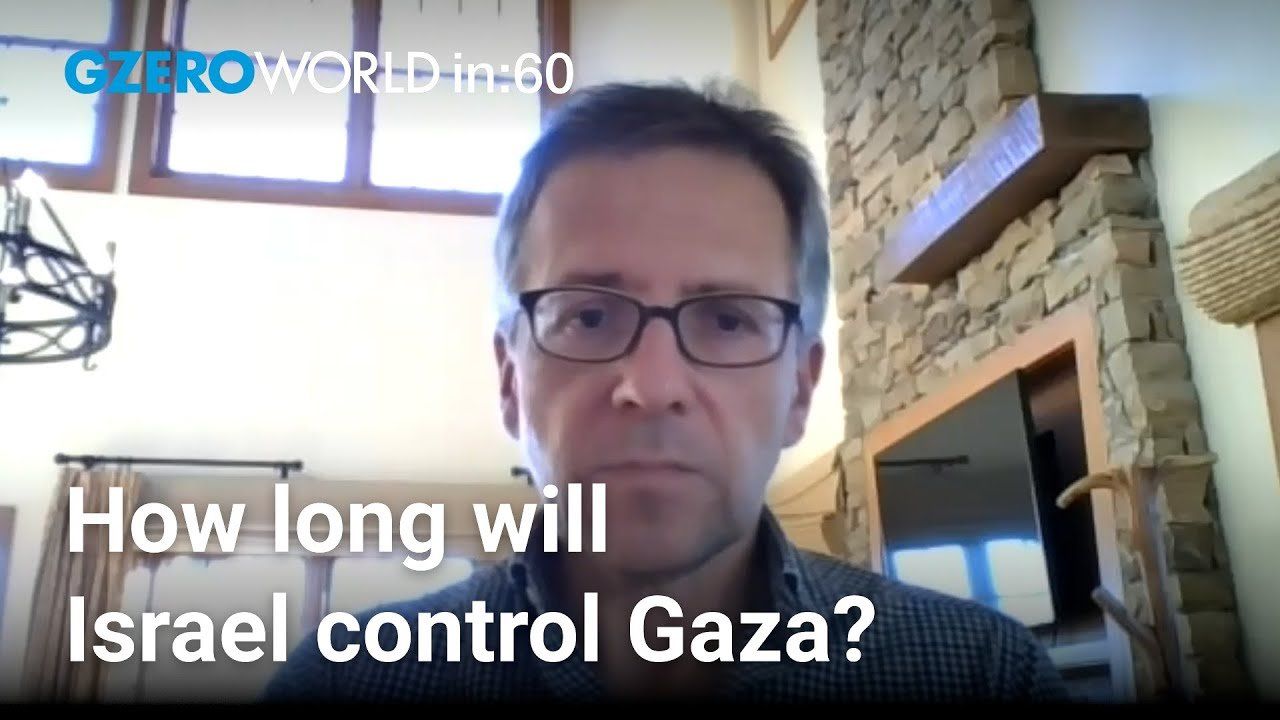Ian Bremmer shares his insights on global politics this week on World In :60.
How long will Israel's indefinite security control in Gaza last?
I think a long, long time. Was it a Colin Powell that said, you know, you break it, you own it in terms of Iraq and Americans were there for a long, long time. I can't see anyone willing to come in and play a security role that will work after the Israelis have wrought absolute destruction on the people and infrastructure of Gaza, which is clearly what is required if you want to destroy Hamas. And indeed Netanyahu has said that they're going to stay and as long as it takes, essentially in terms of security. By the way, the Israeli people strongly don't want that. They don't want an occupation, but they're kind of stuck in one. And that's one of the reasons why a ground war was something to think more carefully about. And look, there are no easy answers for anyone here. This is going to get a lot worse before it gets better.
What do you expect from the Biden-Xi meeting at APEC?
Well, it's definitely happening. Big summit next week in San Francisco. I'll be there, should be a lot of fun. And look, the Chinese, they don't agree with the United States on a lot of policies. There's not a lot of trust in the relationship, but they are adults. And in that regard, they do want ultimately a level of stability. They don't want the world to burn. They'd like, for example, the Israel-Hamas conflict to be over soon. They'd like Russia-Ukraine to be over soon. They're not taking a leadership role on any of these things. And the US meeting, the Biden meeting with Xi, I suspect, is going to be reasonably strong because there's been so much prep for it on a bunch of issues that both countries are trying to build some stability. Fentanyl, for example, artificial intelligence, for example, climate, for example. Having said all of that, Taiwan and technology are the big bugbears in the relationship. And right now they're both heading in a more problematic direction, not in a better one.
Finally, is a nuclear Israel concerning during a time of war?
I'm actually going to say no. A nuclear Israel is actually less concerning in a time of war because it is yet one more reason why the Israelis don't need to feel that they face an existential threat from external enemies. There are a lot of people out there, certainly Hamas, certainly Hezbollah, certainly the Islamic Republic of Iran, whose stated goals are the end of Israel. But they can't come close to bringing it about. And indeed it was the Israeli security failure to under Netanyahu that allowed the October 7th terror attacks to pose such a threat to Israel that it did. So on balance, I'd say it's stabilizing, but I also should say, let's keep in mind that there are some insane people that are on the far right that are still in government in Israel, including the heritage minister who was openly musing about the possibility of using a nuke on Gaza, which is something that should get you fired and Netanyahu hasn't yet, to my knowledge, fired him, which is insane. So, I mean, let's also recognize that there are crazy people in the government, like the Proud Boys of Israel, essentially. And really, they cannot be pushed out fast enough.
- Is Israel ready for the nightmare waiting in Gaza? ›
- Israel orders 'complete siege' of Gaza ›
- Why Israel now supports an Iran nuclear deal ›
- Ian Explains: How Israel & Iran went from friends to enemies ›
- China hawks’ Beijing trip makes a Biden-Xi summit more likely ›
- Can Biden-Xi meeting ease tensions? ›
More For You
Most Popular
In this Quick Take, Ian Bremmer reacts to President Trump’s State of the Union address, calling it “a rehashing of the greatest hits” with little new policy direction.
Small business hiring surged 7% above the 2024 average in December, led by a surprise rally in retail. But with uncertainty still historically high and mounting concerns over tariffs, can this momentum survive 2026? Explore the data behind the resilience of the US small business sector. Get the latest economic insights from Bank of America Institute.
